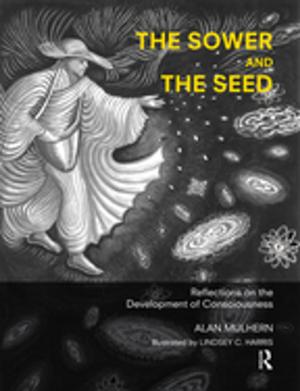Inequality and Violence
A Re-appraisal of Man, the State and War
Nonfiction, Social & Cultural Studies, Political Science| Author: | Anna Cornelia Beyer | ISBN: | 9781317116974 |
| Publisher: | Taylor and Francis | Publication: | May 23, 2016 |
| Imprint: | Routledge | Language: | English |
| Author: | Anna Cornelia Beyer |
| ISBN: | 9781317116974 |
| Publisher: | Taylor and Francis |
| Publication: | May 23, 2016 |
| Imprint: | Routledge |
| Language: | English |
With Theory of International Politics Kenneth Waltz established Neo-realism as a major school of thought in IR, which still remains a dominant approach within the discipline in the Anglo-American world and beyond. Man, the State and War - his first contribution to the debate in IR and the predecessor to Theory of International Politics - received praise for its presentation of a discussion on the causes of international warfare as well as the possibilities of its prevention on three different levels of analysis: the individual, the state and the international system. This book reflects on the arguments presented in Man, the State and War from a contemporary perspective. Do Waltz's ideas still hold firm ground in the discipline? The book alerts to the perceived necessity of combining conceptions of governance and authority with considerations on the reduction of inequality at the individual, state and international level. Inequality in particular has received increased attention as a cause for violence at all three levels since Waltz published Man, the State and War. The book also addresses Waltz's rejection of supranationalism as the remedy for war - a view that has been challenged since he wrote the book. One theme stands out: from today's perspective, the establishment and maintenance of 'good global governance' can be considered the most important aspect for the prevention of war.
With Theory of International Politics Kenneth Waltz established Neo-realism as a major school of thought in IR, which still remains a dominant approach within the discipline in the Anglo-American world and beyond. Man, the State and War - his first contribution to the debate in IR and the predecessor to Theory of International Politics - received praise for its presentation of a discussion on the causes of international warfare as well as the possibilities of its prevention on three different levels of analysis: the individual, the state and the international system. This book reflects on the arguments presented in Man, the State and War from a contemporary perspective. Do Waltz's ideas still hold firm ground in the discipline? The book alerts to the perceived necessity of combining conceptions of governance and authority with considerations on the reduction of inequality at the individual, state and international level. Inequality in particular has received increased attention as a cause for violence at all three levels since Waltz published Man, the State and War. The book also addresses Waltz's rejection of supranationalism as the remedy for war - a view that has been challenged since he wrote the book. One theme stands out: from today's perspective, the establishment and maintenance of 'good global governance' can be considered the most important aspect for the prevention of war.















